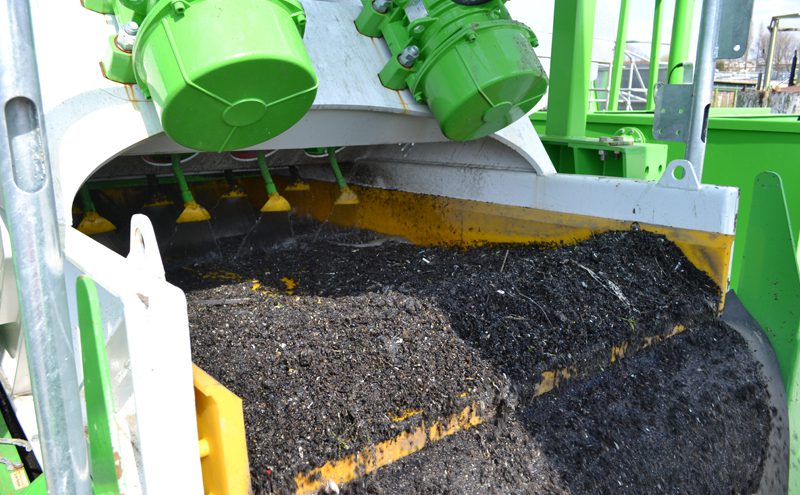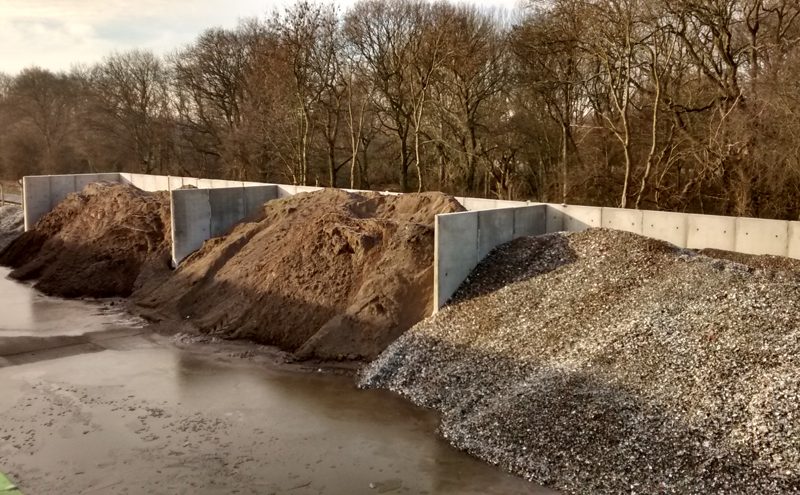
Darren Eastwood from waste management specialist CDEnviro explains how new developments are making the recovery of road and gully waste more feasible
The miscellany of cardboard, dust, glass, grit, metal, paper, plastic, rag and wood collected from our roads and pavements has often been seen simply as an irritation destined for landfill sites. The time, effort and cost of sorting the sheer volume and variety of material hasn’t been outweighed by the environmental imperative, and recovery just hasn’t been worth it.
The remaining options are not attractive. Operators can send material to landfill with high surcharges and the risk of getting turned away because it’s too wet. Some choose to dewater material on site using homemade approaches like additives or sawdust to soak up the water, but then still have to pay costly disposal. They also risk water run off which can be damaging to the environment and leave the business at risk of future legal implications.
An alternative is to pay a different waste processor to take it, which at least allows them to pass on the recycling credit. But in that situation, the original operator does all the work in collecting the material and then someone else reaps the real rewards of landfill diversion.
Another option, for the unscrupulous few, is to flout the law and mix or dispose of the material in an illegal way, damaging the environment and transferring the costs to taxpayers; obviously something to be avoided.
Times have changed though as the technology to make it possible for unpromising material such as street sweepings to be diverted from landfill has developed considerably in recent years. Combine this with the fact that the costs associated with landfill continue to rise and the reduction in the number of landfill sites, and recovery becomes a vastly more attractive option. Rather than being a burden, this material provides an opportunity to meet both environmental and economic goals.
Companies are now seeing great potential in road sweepings and gully waste as a valuable resource as it contains many useful materials that, once treated, can be recycled for re-use. Recycle material correctly with a professional, and although there’s an upfront cost, it is by far the lowest cost/most environmentally friendly means of operating.

Fit for purpose
New ‘wet processing’ systems successfully screen, classify and dewater waste streams, diverting over 70% of the input from landfill. They remove contaminants, oversized matter and also maximise recycled water levels. The systems can be ‘turnkey’ ready to go, or modular, so that they can be used on a variety of sites and locations.
The recovered material is graded; larger grit and gravel is suitable for use as recycled aggregates and washed grit appropriate for non-structural fill secondary aggregate. Any remaining smaller sand, grit and gravel still has significant potential for recovery and reuse.
The organic material commonly found in sweepings can be used in composting or incineration. It is possible that some material will still have to go to landfill, but it will be in greatly reduced volumes and weight, thanks to the resource extraction and dewatering processes.
Investment challenges
Investment in this new treatment technology reflects the increasing importance being placed on waste management. A sustainable solution needs to be two-fold; commercially viable and able to improve recycling figures for the company.
Typically companies have to secure the work (i.e. tonnage) before they invest in a recycling system. Then when investing in new equipment, a decision maybe needs to be made between, for example, the up-front cost of the equipment and the quality of the material produced by the recycling process.
There are many incentives for businesses to invest in an effective recycling solution. The main one being the financial opportunity it provides. The ability to recover reusable material from waste, with the resultant significant reduction in the volume of material sent to landfill and the associated disposal costs can soon make themselves known on the balance sheet.
The added incentive of recovering clean dewatered sand, stone, and aggregates which can be sold for low-grade construction applications, creating a new source of revenue is also a compelling argument in the purchasing decision. Businesses which can demonstrate effective recycling and sustainability efforts find it often helps with winning new contracts too.
The quality of output, system reliability and aftersales support from the top suppliers mean the risk for operators is greatly reduced. Although machines are developed for the harsh environments and high levels of use, grime, dirt and loose material prevalent on most waste treatment sites accumulates inside machines. This can compromise moving parts and risk damaging the machine, so operators need to be confident that their supplier can support them on an ongoing basis.
The best suppliers realise that the requirements and demands placed on customers are ever changing and will help them adjust to these changes by offering continual support and information on market changes.
Political will
Alongside, the environmental and economic perspective, there is also an increased political focus on resource recovery and reuse. This is at least in part driven by the European Commission’s Circular Economy Package – and mounting landfill costs mean that the ‘disposable’ approach will have to change. The package sets out:
• A common EU target for recycling 65% of municipal waste by 2030;
• A binding landfill target to reduce landfill to maximum of 10% of municipal waste by 2030.
This extra dimension means that simply ignoring the issue of previously difficult to treat material is no longer an option.
The systems that ensure high quality output of recovered material from even the most unpromising input materials are now available, in a way that allows businesses to spread the costs and reduce initial outlay. The road to improved recycling is well and truly open.
Further info: www.cdenviro.com








